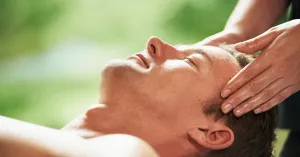
Medical Massage in Cases of Long COVID and Chronic Stress–Related Disorders
I typically write clinically oriented articles based on my direct clinical experience and observation. I do not develop educational material unless I have treated at least 20 cases, reproduced outcomes consistently, and followed patients after discharge to observe durability of results.

If you don’t know how to do something, then don’t do it
There are many painful musculoskeletal conditions in which massage therapy can be helpful. There are also many stress-related illnesses where massage may provide significant benefit. Massage can be helpful in post-concussion rehabilitation and in many other conditions as well.
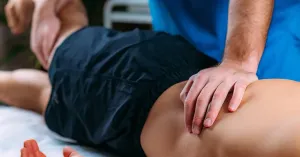
Chronic Stress and Autoimmune Diseases
Chronic stress–related illnesses produce a wide range of symptoms that overlap multiple syndromes and conditions. Over the past several years, I have successfully developed and combined protocols for myofascial mobilization, TMJ dysfunction, acceleration of cerebrospinal fluid drainage, tension headache techniques, and approaches to dizziness into one integrated, technically precise methodology for addressing chronic stress–related disorders.
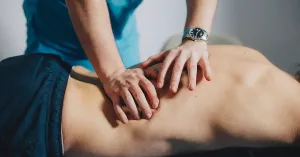
Discover the Magic That Happens When Science Meets Touch
When massage therapy produces results that clients describe as unbelievable or even magical, what they are often experiencing is not magic at all—but science fully dedicated to clinical application.

Pandemic-Related Chronic Stress as a Contributor to Neurocognitive and Somatic Dysfunction: Clinical Implications for Medical Massage Therapy
For the last almost 4 years ,I have observed a very substantial rise in patients presenting with brain fog, short-term memory impairment, headaches, fatigue, dizziness, and autonomic imbalance.

Responsible vs. Irresponsible
After publishing my overview “Be Informed—or Else,” I received a message from a former student who has become a good friend and a very successful medical massage practitioner. She graduated from my program 25 years ago and, 15 years ago, moved to a small vacation town in California, where she established a thriving practice.
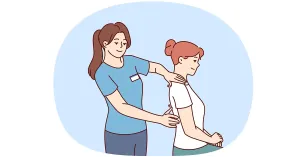
Be Informed — or Else
The title of this article may sound like a warning. Some of us are sensitive to warnings, yet—as the saying goes—only the truth will set us free. In this overview, I revisit a series of past “exciting slogans” promoted by dishonest and/or misguided individuals that significantly distracted the professional field of massage therapy. These narratives successfully divided our community into so-called “advanced” versus “simple” massage therapists, extracted large amounts of money from practitioners eager to learn “new” methods ...

Medical Schools of the Internet / YouTube / Social Media
Approximately twenty years ago, with the rise of social media and online video platforms, so-called “medical schools of the Internet” began to grow. In my practice we noticed the effect immediately: patients—often referred by physicians and tested with every available medical exam—would search the Internet and return convinced they had been misdiagnosed. This led to a surge of self-diagnoses, anxiety, and new stress-related illnesses.
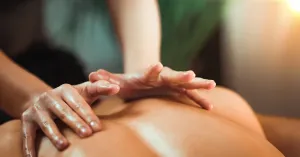
Miracles and Mysteries in the Field of Massage – Part 3
Dear readers,
Let’s continue the pattern. In the fields of medical and sports massage, both we and our patients often consider it a miracle when we achieve unusually fast and/or unexpectedly outstanding clinical outcomes. For example, when a person suffers for long periods from stress-related disorders and/or experiences significant anxiety or worry while preparing for a difficult surgery
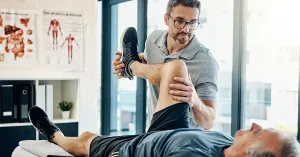
Warning: Stretching and Exercise Can Be Hazardous
Because of the importance of the case I am about to present, I decided to postpone writing “Miracles and Mysteries in the Field of Massage – Part 3.” In the meantime, for those who have not had a chance to read Part One and Part Two, you are welcome to click the links below.
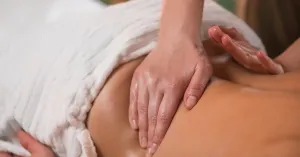
Miracles and Mysteries in the Field of Massage – Part 2
Last Sunday, early in the morning, I published Part 1. By afternoon, I received a call from a retired board-certified internal medicine physician whom I’ve known and respected for 25 years. Years ago, we were members of a close-knit integrative medicine group.

Miracles and Mysteries in the Field of Massage Part 1
One can say that I cover nearly every possible condition we face in our practice. A few years ago, I truly believed that I had completed my teaching mission—that there was nothing more to cover or teach. That was my sense of accomplishment at the time.
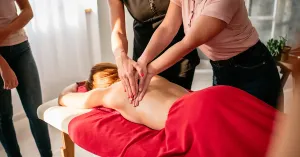
Science-Based Medical and Sports Massage Is Not Rocket Science
I am planning to return to teaching and would like to share what you can expect—my views on continuing education and massage education in general. This way, if you decide to attend my classes, you will be better prepared to understand my approach and adapt to my methods.

Beyond Technique: Safety, Specialization, and the Future of Medical Massage
Reality Check:
Medical schools as well as massage schools prepare students for clinical practice, generally focusing on building a solid foundation. Students then choose their specializations—MDs select different residency programs. In contrast, massage therapy school graduates do not require residency studies; they simply choose relevant continuing education programs to prepare for their desired careers.
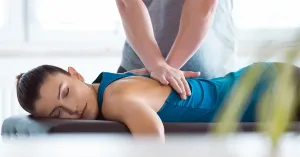
Danger of Overstimulation
Anyone who has attended my classes or follows my writings knows that I proudly declare: massage procedures, when applied appropriately, cannot do harm. Today’s presentation is about exactly that—do no harm. I often say that massage therapy is not rocket science. It is easy to learn hands-on techniques, and if applied correctly, massage procedures are 100% free of side effects. At the same time, massage is an extremely powerful therapeutic methodology.
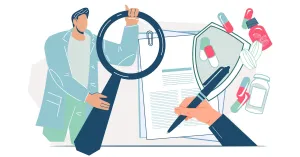
FDA Requiring Patient-Reported Outcomes — Part 3
A little over 10 years ago, when the “evidence-based massage practice” movement began, something strange happened. Suddenly, every author publishing in professional massage journals started attaching long lists of references. Many of these same authors, who had been publishing for years without citing sources, suddenly filled their articles with references—and this alone was interpreted as evidence-based writing.





